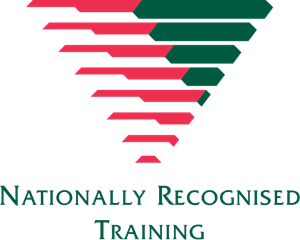
Unit Of competency
Modification History
Not applicable.
Application
This unit describes the performance outcomes, skills and knowledge required to provide responsible gambling services, and to assist those customers who have issues with problem gambling.
Responsible gambling services must be provided wherever gambling activities are undertaken. In the hospitality industry, the gambling environment is usually referred to as the gaming area and is provided in a range of venues, such as hotels, motels, clubs, pubs and casinos.
The major forms of gambling are wagering (racing and sport) and gaming (gaming machines, table games, Keno and lotteries). Both forms of gambling are relevant to the hospitality industry.
Hospitality venues may operate Totalisator Agency Board (TAB) outlets for wagering on racing and sport events. They may also cover the full range of gaming activities, including operating gaming machines, table games, Keno and lotteries.
Responsible provision of gambling services is an essential underpinning skill for all hospitality personnel involved in the sale and service of gambling activities in licensed premises, including the licensee, gaming supervisors and gaming managers when involved in operational gambling activities.
The unit applies equally to frontline operational gambling personnel who operate with a limited level of autonomy and under some supervision and guidance from others. They would operate within predefined organisational procedures, and regulatory authority and industry and organisational codes of conduct.
Operational job roles would include gaming attendant, table game attendant, croupier and multi-skilled food and beverage attendant.
The unit also relates to satisfying the requirements for providing responsible gambling services under state and territory legislation. The terms used to describe this vary across state and territory regulatory bodies and can include Responsible Conduct of Gambling (RCG), Responsible Service of Gaming, or Responsible Service of Gambling (RSG).
Those developing training to support this unit must consult the relevant state and territory gaming licensing authority to determine accreditation arrangements for courses, trainers and assessors.
Under differing state and territory legislation this is a required certification unit for certain nominated personnel operating in licensed gambling premises.
The requirement to ensure compliance with organisational policies, legal obligations and codes of practice for gambling venues is not covered by this unit but may be found in SITHGAM014 Manage gaming activities.
Pre-requisite Unit
Nil
Competency Field
Gaming
Unit Sector
Hospitality
Elements and Performance Criteria
|
ELEMENTS |
PERFORMANCE CRITERIA |
|
Elements describe the essential outcomes. |
Performance criteria describe the performance needed to demonstrate achievement of the element. |
|
1. Implement responsible gambling practices. |
1.1.Follow responsible gambling service procedures according to relevant state and territory legislation and industry and organisational policy and codes of conduct. 1.2.Communicate with appropriate personnel on gambling related incidents, situations and their compliance with legislation and industry and organisational policy. 1.3.Maintain accurate records of gambling related incidents and associated staff action according to industry and organisational policy and procedures. 1.4.Ensure gambling environmental features support responsible gambling policies within scope of own responsibility. |
|
2. Provide information and assistance to customers about problem gambling. |
2.1.Provide accurate and appropriate information on problem gambling to customers on request. 2.2.Follow procedures for self exclusion and exclusion according to legislation, industry and organisational policy, and confidentiality and privacy requirements. 2.3.Display signage and information related to responsible gambling in appropriate places visible to players, according to legislative, industry and organisational requirements. 2.4.On request, provide information on available support services according to confidentiality and privacy requirements, and legislative, industry and organisational requirements. |
Foundation Skills
|
Foundation skills essential to performance in this unit, but not explicit in the performance criteria are listed here, along with a brief context statement. |
|
|
SKILLS |
DESCRIPTION |
|
Reading skills to: |
|
|
Oral communication skills to: |
|
|
Problem-solving skills to: |
|
|
Technology skills to: |
|
Range of Conditions
|
Specifies different work environments and conditions that may affect performance. Essential operating conditions that may be present (depending on the work situation, needs of the candidate, accessibility of the item, and local industry and regional contexts) are included. Range is restricted to essential operating conditions and any other variables essential to the work environment. |
|
|
Responsible gambling service procedures must relate to: |
|
Unit Mapping Information
SITHGAM201 Provide responsible gambling services
Links
Companion Volume implementation guides are found in VETNet – https://vetnet.gov.au/Pages/TrainingDocs.aspx?q=68c40a93-e51d-4e0f-bc06-899dff092694
Assessment requirements
Modification History
Not applicable.
Performance Evidence
Evidence of the ability to complete tasks outlined in elements and performance criteria of this unit in the context of the job role, and:
- identify appropriate organisational processes in response to each of the following gambling related situations:
- customer request for self-exclusion or assistance
- customer request for counselling services
- venue exclusion of self-identified problem gambler
- dealing with disputes or complaints
- refusal of credit
- under-age gambling
- follow organisational policies and procedures for implementing the following responsible gambling practices:
- provision and appropriate placement of signage, advertising and promotional materials and activities
- use of strategies to indicate the passage of time
- use of strategies that encourage breaks in play.
Knowledge Evidence
Demonstrated knowledge required to complete the tasks outlined in elements and performance criteria of this unit:
- current legislation and industry and organisational policies and procedures in regard to responsible provision of gambling services
- indicators of problem gambling:
- bills that cannot be paid by the player due to excessive gambling
- borrowing money to gamble
- changes in sleeping or eating habits due to gambling
- committing illegal acts to finance gambling
- considering self-harm as a result of gambling
- feelings of remorse after gambling
- gambling more money than the player can afford
- gambling that makes the home life of the player unhappy
- gambling to escape worry or personal problems
- trying to win back gambling losses
- public interest reasons for implementing responsible service of gambling practices:
- government and community concerns with problem gambling
- economic costs of problem gambling
- principles of harm minimisation and strategies to reduce the harm associated with problem gambling:
- containing gambling-related signage to inside the venue
- positioning clocks with the correct time in visible locations in gaming machine areas
- not publishing gaming machine advertising
- not locating ATMs in gaming areas
- ensuring that ATM facilities do not allow cash withdrawals from credit accounts
- key requirements of responsible gaming services as detailed in:
- house policies
- industry and organisational codes of practice
- state and territory gaming legislation and regulations
- state and territory licensing authority regulations and policies
- organisational responsible gambling service procedures for:
- displaying appropriate gambling-related signage:
- available gambling counselling services, self-exclusion programs and contact cards
- chances of winning and probability
- gaming machine notices regarding gambling warning and problem gambling
- house policy and industry code of conduct for responsible gambling services
- self exclusion and exclusion provisions
- venue code of conduct
- maintaining confidentiality and privacy requirements
- maintaining records of gambling related incidents and associated staff action
- self exclusion and exclusion:
- customer requesting to be barred from gaming or to have access limited
- third party exclusion
- venue exclusion
- response to attempts to breach exclusion
- procedures for self-exclusion:
- referral to colleague, supervisor or manager, according to scope of responsibility
- referral to counsellors and support services
- initiating exclusion processes when requested by customer
- role of individual staff members, supervisors and managers in providing responsible gambling services
- ramifications for an organisation and an individual of non-compliance with responsible gaming requirements
- contents of problem gambling information provided by the organisation as required by legislation
- available counselling services and referral procedures.
Assessment Conditions
Skills must be demonstrated in an operational gaming environment. This can be:
- an industry workplace
- a simulated industry environment set up for the purposes of assessment.
Assessment must ensure access to:
- facility where industry-realistic gambling activities occur
- current regulatory documents, legislative publications and codes of conduct outlining responsible gambling requirements distributed by key state and territory gambling licensing agencies
- industry and organisational codes of conduct, policies, procedures, information, signage and brochures relating to responsible gambling services
- industry-realistic range of customers involved in gambling activities; these can be:
- individuals who participate in role plays or simulated activities, set up for the purpose of assessment, in a simulated industry environment operated within a training organisation.
Assessors must satisfy the Standards for Registered Training Organisations’ requirements for assessors; and:
- have worked in industry for at least three years where they have applied the skills and knowledge of this unit of competency.



